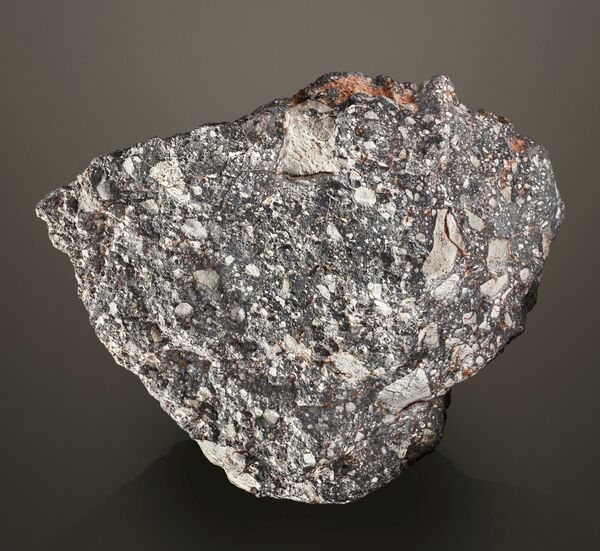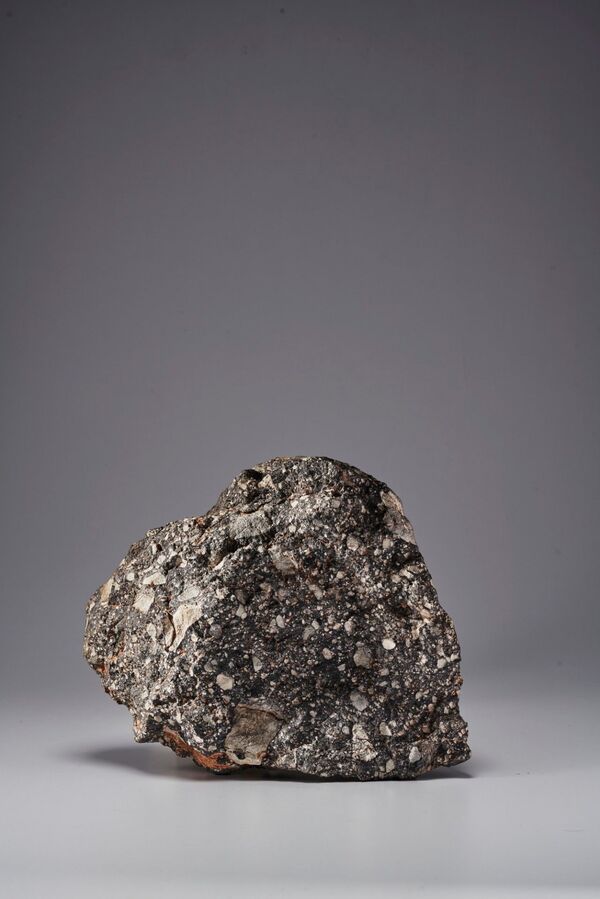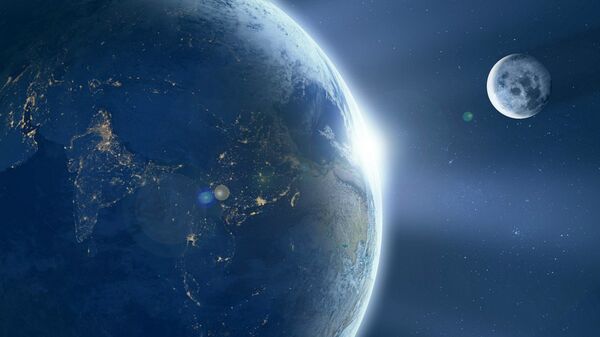Named NWA 12691, the specimen is considered to be the fifth-largest piece of moon rock ever found on Earth, according to James Hyslop, the head of the auction house’s Science and Natural History department.
Although the exact date of its arrival is unknown, it is believed that the lunar meteorite crash-landed on Earth thousands of years ago after a comet or asteroid had an extremely close encounter with the moon and projected lunar remnants down to Earth.

The rock first came into the possession of humans after being discovered in 2018 in the Sahara Desert, along the border between Algeria and Mauritania. After a time, the massive moon rock ultimately wound up in the collection of Dr. Lawrence Stifler, who, according to Christie’s, is “one of the foremost collectors of meteorites in the world.”
Hyslop explained to Reuters that interested buyers can be assured that the auction item is in fact of the lunar kind, as the rock was tested against lunar samples brought back to Earth by astronauts throughout NASA’s Apollo programs.
“In the 1960s and 1970s the Apollo programme brought back about 400 kilograms of moon rock with them, and scientists have been able to analyze the chemical and isotopic compositions of those rocks, and they have determined that they match certain meteorites,” Hyslop told the outlet.
“We are expecting huge international interest in it from natural history museums ... it is a wonderful trophy for anyone who is interested in space history or lunar exploration.”

“It is an actual piece of the moon. It is about the size of a football, a bit more oblong than that, larger than your head,” Hyslop said when asked about the rock’s dimensions.
Aside from the sale of the hefty lunar rock, Christie’s indicated in an April 30 release that the company will also be holding a private sale for a group of 13 “aesthetic iron meteorites” that were “shaped by forces terrestrial and extra-terrestrial.”
“This group of natural sculptures forms one of the most important collections of aesthetic iron meteorites in private hands,” the notice reads. The group of meteorites is estimated to be worth roughly $1.7 million.

